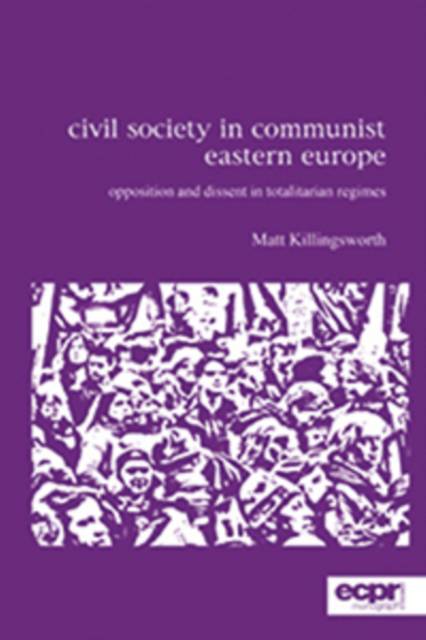
Door een staking bij bpost kan je online bestelling op dit moment iets langer onderweg zijn dan voorzien. Dringend iets nodig? Onze winkels ontvangen jou met open armen!
- Afhalen na 1 uur in een winkel met voorraad
- Gratis thuislevering in België vanaf € 30
- Ruim aanbod met 7 miljoen producten
Door een staking bij bpost kan je online bestelling op dit moment iets langer onderweg zijn dan voorzien. Dringend iets nodig? Onze winkels ontvangen jou met open armen!
- Afhalen na 1 uur in een winkel met voorraad
- Gratis thuislevering in België vanaf € 30
- Ruim aanbod met 7 miljoen producten
Zoeken
Civil Society in Communist Eastern Europe
Opposition and Dissent in Totalitarian Regimes
Matt Killingsworth
€ 58,95
+ 117 punten
Omschrijving
As well as promoting debates about liberal democracy, the dramatic events of 1989 also bought forth a powerful revival in the interest of the notion of civil society. This revival was reflected mainly in two broad tracts of literature. The first focused primarily on events surrounding the Solidarity movement in Poland and the tumultuous events of 1980-81. The second was concerned with the Velvet Revolutions more broadly. Following the events of 1989, there appeared a number of works sharing the common central argument that civil society played a key role in the overthrow of these Communist regimes in 1989. Killingsworth's book presents three broad arguments, all of which reject the way civil society has been applied in the analysis of opposition and dissent in totalitarian Czechoslovakia, the GDR and Poland. First, it argues that the totalitarian nature of Soviet-type regimes means that it was not possible for a genuine civil society to exist. Second, the civil society paradigm, as it has been applied to opposition and dissent in Soviet-type regimes in Eastern Europe, lacks analytical rigour. Thirdly, the book argues that the dominant liberal interpretation of dissenting opposition in Soviet-type regimes is politically and morally flawed.
Specificaties
Betrokkenen
- Auteur(s):
- Uitgeverij:
Inhoud
- Aantal bladzijden:
- 184
- Taal:
- Engels
- Reeks:
Eigenschappen
- Productcode (EAN):
- 9781907301278
- Verschijningsdatum:
- 26/06/2013
- Uitvoering:
- Paperback
- Formaat:
- Trade paperback (VS)
- Afmetingen:
- 155 mm x 231 mm
- Gewicht:
- 272 g

Alleen bij Standaard Boekhandel
+ 117 punten op je klantenkaart van Standaard Boekhandel
Beoordelingen
We publiceren alleen reviews die voldoen aan de voorwaarden voor reviews. Bekijk onze voorwaarden voor reviews.











